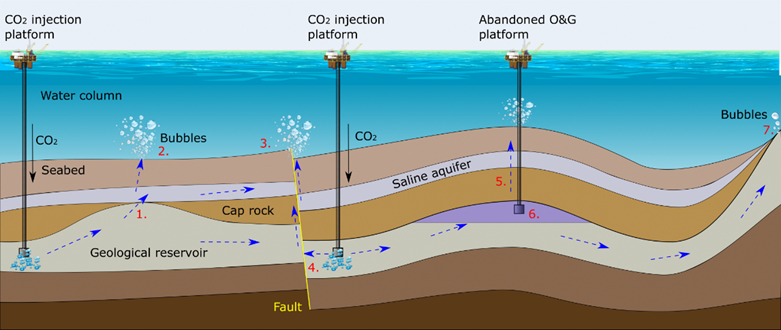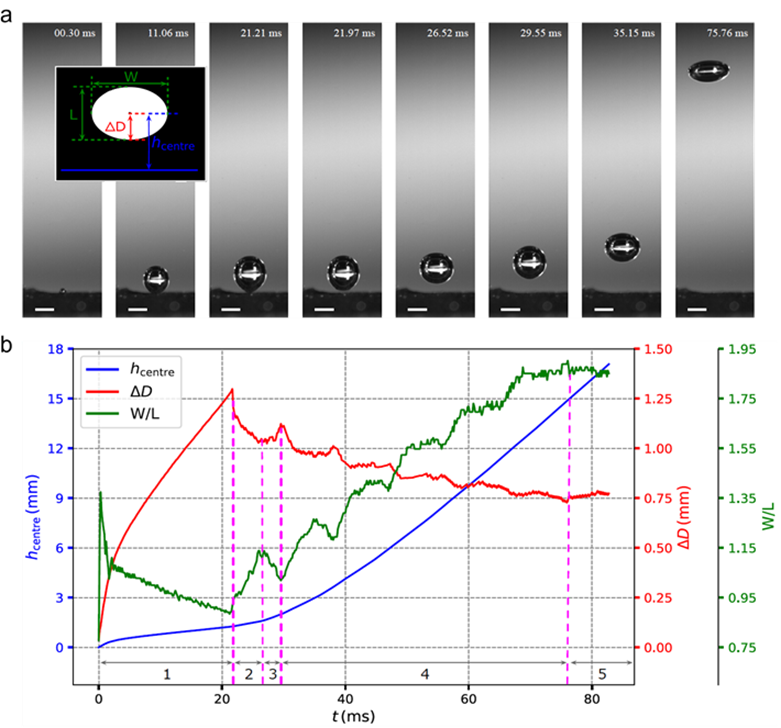There are 13 provinces along the coast of the Chinese mainland. Although they occupy less than 14% of the nation's territorial area, they produce 41% of the country's annual CO2 emissions. Not far from the coast are 11 offshore sedimentary basins that provide potential large-scale carbon storage reservoirs and sufficient permanent geologic sequestration capabilities for more than 100 years of carbon storage, potentially addressing long-term greenhouse gas emissions. To realize the one-off removal of greenhouse gases, the produced CO2 needs to be captured, compressed, and transported via ship or pipeline to offshore platforms and injected into sub-seabed reservoirs for permanent isolation from the atmosphere. Thus, a technically feasible method of offshore CCUS (Carbon Capture, Utilization, and Storage) is possible. To ensure the CO2 is permanently locked inside the sub-seabed geological reservoir, environmental monitoring is necessary, in which underwater acoustic monitoring and signal processing plays a unique and key role in guaranteeing the safety of the ocean environment.
Dr. Li focuses on the environmental monitoring of marine carbon storage using acoustic tools (Figure 1), studying the application of active acoustic modeling to investigate the characteristics of gas leakage at the sediment-water interface, analyzing the key factors influencing the determination of gaseous bubble vibration and acoustic radiation in the marine environment, and developing robust underwater acoustic transmission links for safety warning signals.

【Figure 1. Potential gaseous bubble leakage routes for CO2 injected into the geological reservoir.】
One of Dr. Li's research projects – a "carbon neutrality" focused project entitled "Prototype for Adaptive Environmental Monitoring for Marine Carbon Storage" aims to solve scientific problems such as long-term in situ measurements, risk assessments, and environmental hazard thresholds in the marine carbon storage area. It examines the spatial structure of sub-seabed storage reservoirs, undersea gas leakage, and mechanisms of gaseous CO2 bubble formation on the seabed (Figure 2), the risks under floating environmental baseline conditions, and spatiotemporal collaborative early warning. He hopes to make breakthroughs in key technologies involving acoustic thresholding for wireless early warning, verifying different theories and methods and the feasibility of key technologies, and providing technical support to establish a prototype for a long-term carbon storage environmental monitoring system. The investigated theories and techniques should provide a foundation for decision-making for large-scale sub-seabed CO2 storage.

【Figure 2 The tendency of quantitative parameters in the process of gas bubble deformation at the sediment-water interface.】
Dr. Jianghui Li received his bachelor's degree in communications engineering from Huazhong University of Science and Technology in 2011 and then joined the Chinese Academy of Sciences as a research assistant. In 2013 and 2017, he received his master’s degree in communications engineering and Ph.D. in electronic engineering from the University of York, UK. During that time, he was the first recipient of the IEEE Oceanic Engineering Society (OES) Scholarship in the UK (2016) and received the K.M. Stott Prize for excellent scientific research in 2017. After that, he served as a research fellow at the University of Southampton and the National Oceanography Center. In March 2021, he was shortlisted for a research fellowship at the Royal Academy of Engineering; in July 2021, he joined Xiamen University as a professor and became a faculty member of the State Key Laboratory of Marine Environmental Science (MEL) in November 2021.
To date, Jianghui has contributed to a number of policy recommendations on "carbon neutrality" for the National Development and Reform Commission, the China Council for International Cooperation on Environment and Development, and the Asian Development Bank. In November 2021, he founded the CCUS forum “Marine Carbon Storage: Environment and Information Technology." He is also actively preparing for the establishment of a multidisciplinary research team on "Marine Carbon Sequestration." For more information, please visit his webpage https://mel2.xmu.edu.cn/faculty/JianghuiLi/ or contact him at jli@xmu.edu.cn.